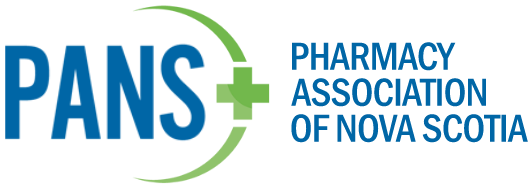If you, or a loved one, have been admitted into the hospital, chances are you have required some kind of Intravenous (IV) treatment. What you may not know is that the majority of IV bags used in hospitals are specially made, by hand, by dedicated pharmacy technicians like Kayla Ross.
There are a host of medications that are delivered by IV. They include highly specific and potentially toxic chemotherapies, antibiotics, pain medications, nutrition, and more. Most of these IVs are "patient specific." The patient's condition, weight, diagnosis, allergies, and sensitivities all factor into what combination of medications may be put in their IV bag.
"Making these is a lot of work," says Kayla.
One IV bag can take between 15 and 30 minutes to produce, depending on the complexity of the formulation.
Kayla has one of the highest training levels for a pharmacy technician, which permits her to work in all sterile preparation areas at the Victoria General Hospital and Halifax Infirmary, including Chemotherapy. Extra precautions are taken in this area for both the safety of the fragile patients and the safety of the pharmacy technicians making the IVs. While working in this facility, Kayla wears two pairs of gloves, special gown that are made of a material best described as similar to sanitary napkins (made to absorb chemotherapy and not reach the skin of the pharmacy technician in the case of an accidental spill), boot covers, a mask, and a protective covering over her hair. Additionally, she cannot wear any form of makeup or nail polish in order to limit the risk of any contamination of the IVs as she works within a special ventilation hood.
Beyond IVs, Kayla and her colleagues also make unique items such as cocaine eye drops, they fill devices used for patients' pain management, and more. She has a variety of duties she rotates through, including being responsible for inputting medication orders in to the computer system, checking the prescription, double checking the drug, and setting up the IV for production.
One of the most important elements in the production of IVs for Kayla and her colleagues is the repeated checks that are done to ensure, not only does the patient get the correct medication that was ordered by the physician and reviewed by the pharmacist but, that they are also ready for the medication when it is produced.
Many cancer drugs can only be used within a very small window before they expire. These drugs are very expensive and sometimes rare. In fact, some are only good for a few hours after they are put in an IV. Kayla is often responsible for collaborating with other Health Care Professionals ensuring that the patient is indeed ready to receive the drug, for example their health hasn't deteriorated to the point where it would not be safe to take the drug, before the drug is put together in the IV. Patients' conditions can change rapidly, Kayla and her fellow health care professionals on the patient's health care team work collaboratively to make sure that they are fully aware of any changes the patient may experience and adapt to them accordingly.
Kayla doesn't generally get to meet her patients in person, although there are a pharmacy technicians who are responsible for the hand delivery of the IVs to the patients in the hospital, she says that patient is never far away in her thoughts.
"There are patients that have no idea that a person made this," she says, referring to the IV bag she recently made.
There are some patients who do know. Kayla and her colleagues have received thank you cards from their patients for the treatment they have received. One patient, upon concluding her treatment, wrote a poem about the IV chemotherapy she had been taking and thanking the staff who put the treatment together for her.
Often times, staff find themselves having to stay long beyond their scheduled shift due to a workload that can become quite heavy especially when patient’s needs change. Staff members don’t mind. It's worth it.
"All the overtime is for the patient," Kayla says. "They are always on my mind."
When asked what the one thing she would like patients and their loved ones to know about her work, Kayla said, "That every IV is handmade with care."

